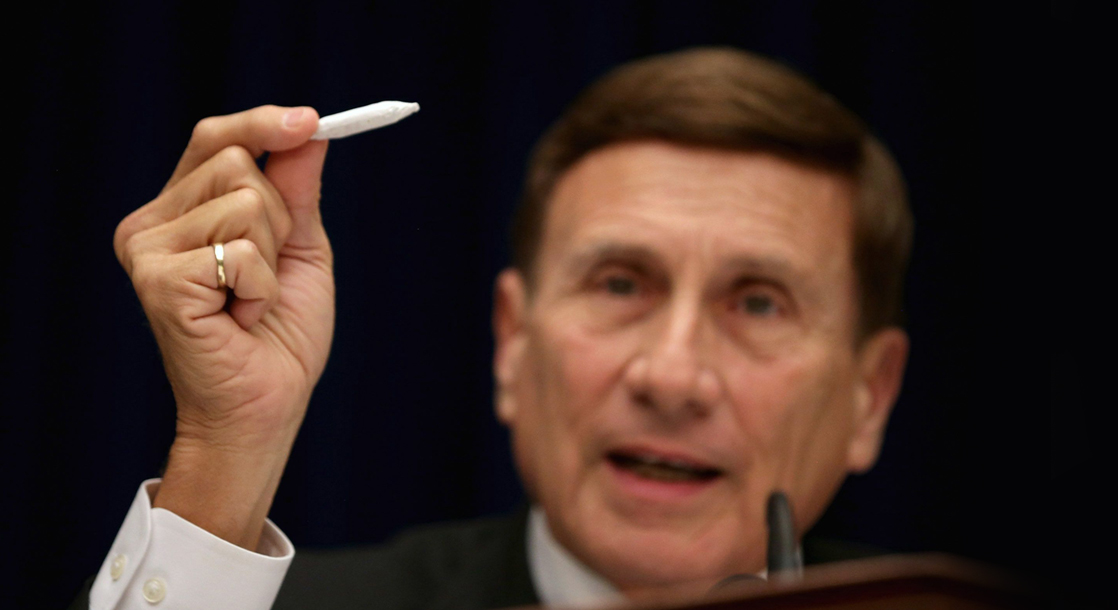A legion of Congressional lawmakers, some of which have advocated against the reform of marijuana laws in the not so distant past, have joined forces in an effort to eliminate some of the restrictive barriers that have jammed up the cannabis plant for the past several decades by introducing legislation that would make it easier for the scientific and medical communities to study its therapeutic benefits.
According to a report in the Santa Cruz Sentinel, Representatives Sam Farr of Washington, Earl Blumenauer of Oregon, Morgan Griffith of Virginia, and Andy Harris of Maryland (the man responsible for the rider that destroyed the possibility of the District of Columbia legalizing retail pot sales) are preparing to drag “The Medical Marijuana Research Act of 2016” up to the steps of the Capitol, later this week, in hopes of forcing Congress to finally get serious about reexamining the federal marijuana laws in a way that ensures governmental policies “are based in science and facts instead of rhetoric.”
While it is not at all shocking to see loyal cannabis advocates like Farr and Blumenauer marching through the streets of Washington D.C. with an enthusiastic piece of pro-pot legislation strapped to their backs, it is, however, oddly peculiar for Representative Harris to be following closely behind – breathing fire alongside his longtime enemies – trying to kick start the stagnate nature of Uncle Sam’s prohibitionary vision by engaging in fearsome battle to get to the bottom of this medical marijuana business, once and for all.
In a recent interview with The Baltimore Sun, Harris said that part of his frustration over the issue of medical marijuana is that “there really isn’t good scientific evidence about what it’s good for and what it’s not good for,” the primary reason he seems to be loaded for bear and ready to see this legislation through to the bitter end. The lawmaker, once a physician at Johns Hopkins Hospital, believes the bill is exactly what it will take for the powers to finally understand the medicinal qualities of a plant that has been considered an outlaw drug for more than 40 years.
“As a physician who has conducted [National Institutes of Health] sponsored research, I can’t stress enough how critical this legislation is to the scientific community,” Harris said in a statement. “Our drug policy was never intended to act as an impediment to conducting legitimate medical research. We need empirical scientific evidence to clearly determine whether marijuana has medicinal benefits and, if so, how it would be used most effectively. This legislation is crucial to that effort because it removes the unnecessary administrative barriers that deter qualified researchers from rigorously studying medical marijuana.”
Although the guts of this legislation have not yet been revealed, a recent article from The Washington Post suggests the proposal will be geared toward allowing more growers than just the University of Mississippi to cultivate research marijuana, as well as tear down the grueling application process currently in place for those interested in studying the herb. It would also force the Department of Justice to put their stamp of approval on all research applications as long as nothing about a study is outside the interest of the American people.
Representative Harris told the Post that while the legislation would not downgrade the current Schedule I classification of the cannabis plant; it would basically hold marijuana in a different light than other Schedule I substances when it comes to the exploring its potential medicinal value.
A companion measure to the House version is also scheduled to be introduced this week by several members of the U.S. Senate. Reports show that Senators Brian Schatz of Hawaii, Orrin Hatch of Utah, Chris Coons of Delaware, and Thom Tillis of North Carolina will head up the effort to get this legislation approved in the upper chamber.
In a press release issued this week by Representative Blumenauer’s office, the lawmaker called the federal government’s current policy on marijuana research “outrageous,” and demanded that Uncle Sam and his drug enforcement cronies “get out of the way to allow for this long overdue research.”











